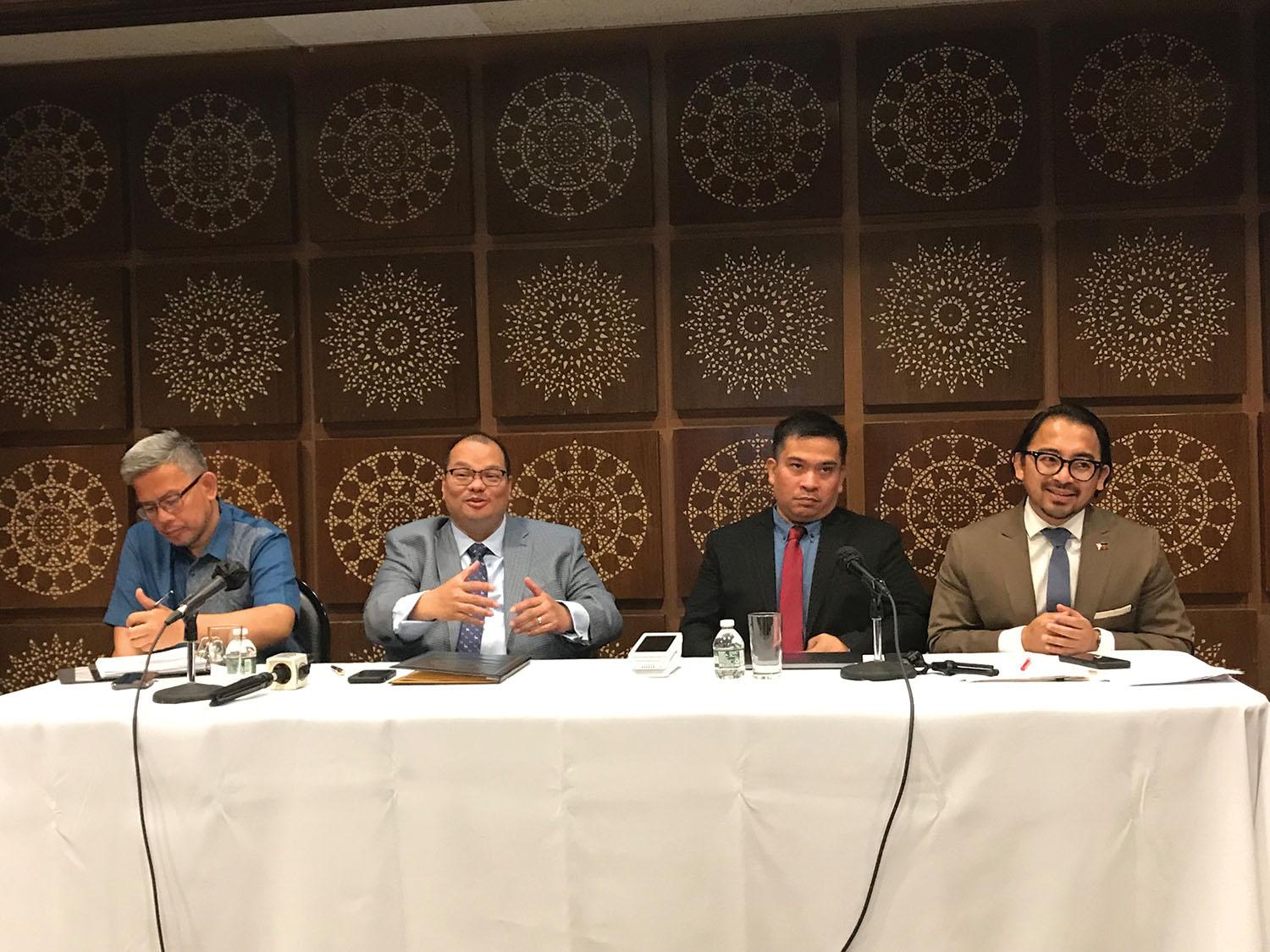
Beginning August 1, 2023, the Philippine Consulate General in New York will introduce an E-payment system, offering applicants the convenience of paying consular fees in advance online or on-site using credit or debit cards.
Consul General Senen Mangalile made this announcement as he addressed the local Fil-Am media during the Consul General’s Media Hour on Monday, July 3.
The system aims to provide more options for payment in addition to accepting cash and postal money orders. Consul General Mangalile highlighted that the online payment portal would particularly benefit applicants for civil registration services, as well as those seeking remote notarization for passport and visa applications.
Mangalile emphasized that this decision was driven by the feedback received from applicants who expressed a desire for a more convenient and modern payment solution and an alternative payment option beyond cash.
“We hear you, and we have been working hard to respond to your clamor. And in a month’s time, we will be ready to offer you this cashless facility,” Consul General Mangalile said.
This move towards cashless transactions will require applicants for citizenship pre-acquisition or retention and document legalization to utilize the E-payment system.
The Consulate General has partnered with NMD Group Corporation, selected after a thorough review process by the bids and awards committee, to design and operate the E-payment system.
While a service fee will be charged by the service provider, Mangalile assured applicants that efforts were made to negotiate minimal fees comparable to those imposed by other establishments for debit or credit card transactions.
“We tried very hard to ensure that this will be a minimal fee, and the NMD group can attest to the fact that we drove a hard bargain. Although it is not a free service, it is no different from the charge that everyone makes at other establishments whenever they use debit or credit cards or whenever they order something online,” he said.
Starting August 1, applicants who plan to pay through credit and debit cards will pay an additional $5, which includes the fee for the e-payment and the additional 3% gateway fee.
With this new system, the Consulate General aims to discourage no-shows by requiring E-payment at the time of appointment booking.
Statistics from 2020 revealed that 28% of dual citizenship applicants and a similar proportion of document legalization applicants did not show up for their appointments. The numbers are worse for the first six months of 2023, where 1,129 applicants out of 3,501 appointments did not show up. By implementing the E-payment system, the Consulate General hopes to increase accountability and optimize service delivery.
“Following the policy of the Department of Foreign Affairs Office of Consular Affairs, when you book a passport appointment, you pay the passport fee using the online payment facility. We will do the same, and any amount paid in advance using the payment system will not be refundable,” Mangalile added.
Sidewalk
Consul General Mangalile also addressed the condition of the sidewalk in front of the Philippine Center building.
In 2016, a horizontal beam supporting the pavement broke, compromising the integrity of the sidewalk. Further assessment indicated that other steel beams supporting the sidewalk were in poor condition due to water and moisture penetration.
Although temporary measures were taken, a comprehensive rehabilitation plan is now being devised, which may involve the replacement and strengthening of concrete slabs and steel beams, as well as structural and waterproofing repairs.
“We recognize the need to address the condition of the sidewalk and are working on a comprehensive rehabilitation plan to ensure the safety and functionality of the area,” Mangalile said.
While some stopgap measures have been implemented, a comprehensive rehabilitation plan was approved by the Department of Foreign Affairs in 2020.
However, recent tests conducted to assess the presence of asbestos within the building confirmed its existence. Before proceeding with the rehabilitation, the necessary asbestos abatement process must be undertaken.
Consul General Mangalile reassured the public that although the sidewalk is not in immediate danger of collapse, it is not in an ideal state either.
“The condition of the structure underneath that sidewalk is not ideal, although it is not in any imminent danger of collapse. It is also not perfectly stable either. So we are working on that problem,” he said. “Complications such as the finding of asbestos materials could hamper and delay the process and also raise the cost.”
The consulate is actively working with consultants and experts to address the issue promptly and safely.
Efforts have been made to communicate with the New York City government, urging them to relocate the bus stop adjacent to the sidewalk, considering its unstable condition. The consulate awaits a response and emphasizes its commitment to ensuring the safety of pedestrians and passers-by.
“We hope that through our consistent communication with them, they would understand we are, after all concerned about the safety of our occupants, applicants, and the passers-by,” Mangalile said.






